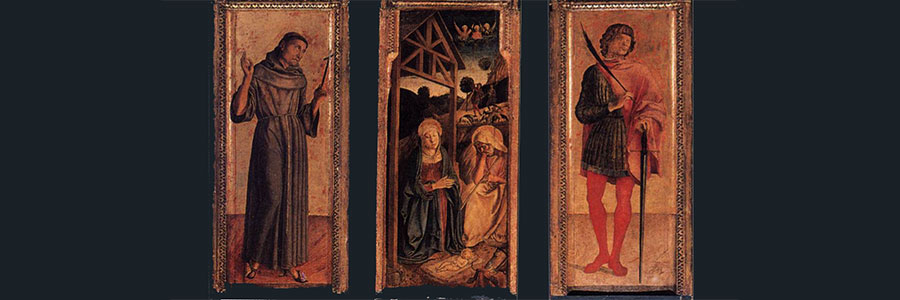Christmas and the Inspiring Drama of Day-to-Day Life

I was looking for some sort of Christmas or Christian or inspirational movie to watch while I cleaned the kitchen on Christmas Eve (yes, it’s a full-movie job sometimes), and I couldn’t come up with anything. The particular problem for which I was seeking a balm is difficult to represent in cinema.
Namely, living my life, I can bring things to a point. I can have an adventure. But what then? The day-to-day grind is the hard part (even when comfortable).
As a writer and (for that matter) a business consultant, I’m well aware of story arcs. Bringing people to that moment of crisis and resolution is one thing. Helping them to trudge along day by day by day by day is another, and that’s where I, for one, have the most difficulty.
In one way or another, the response one typically finds to this problem is to set another target. When you can curl 30 pounds, now you move on to 40; do the same with your life goals. The challenging thing is that the entire series of ratcheting projects has to be part of a grand objective, and so the narrative high (or the dopamine hit) of reaching each step can be overwhelmed by the desire to reach the next one.
Movies embody this conflict. The cinematic structure requires the characters to achieve some goal, which contrasts with the lifelong requirement to sometimes rest in the moment.
The Christmas Nativity story captures this dilemma well. Some years ago (I’m tempted to say, “many”), when my eldest daughter was newly born, back before podcasts and Spotify, I went for a walk in Common Fence Point, Portsmouth, Rhode Island, on Christmas night and happened upon a dramatic radio broadcast of the Bethlehem innkeeper’s reaction upon realizing what had just happened in his barn. The performance was excellent (as proven by my still remembering it twenty years on), but the premise has always puzzled me. Did the innkeeper know? How did he know? Who else knew? (And he just left everybody out in the barn?)
The presentation of the Nativity is strange, that way. On the one hand, Jesus was born among the animals… the nondescript secret soldier, slipping under Satan’s eye by His humble beginning. On the other hand, the magi knew to travel the world to find him, and (as Handel’s Messiah puts it so memorably) “there were shepherds abiding in the fields” encountering the “Heavenly host” with an Earth-shaking song of “Glory to God!”
This, for me, is the most significant difference between Christmas and Easter, and it echoes the disconnect between the culture of the holiday and its theological import. Scrooge has a crisis to allow an engaging story, and then the rest of his life was just “keeping Christmas well.” That sort of summary of the “happy ever after” may work for movie and books, but something in the human soul recoils from the insinuation of a humdrum life.
The movie that I’ve watched every Christmas Eve for several years, It’s a Wonderful Life, comes a bit closer to my Christmas Eve mood. George Bailey has a crisis, we see a summary of each step of his life to that point, and he gets a view of what the world would have been like in the absence of his own day-to-day grind. Even so, what now? The community helps to bail him out of his problem as recompense for his good works. The viewer sheds a happy tear.
What does George do the next day? Proceed to keep Christmas well? Sure, the moral is that his ordinary life was dramatic — heroic — but is he past that, now? All the striving that kept him going, does he put it aside and simply take up an ordinary life?
Perhaps in the odd mix of anonymity and profundity in the Nativity we see the key message that Christmas is not Easter. Soon will come Lent, and then the Passion of our Lord. And the lesson there? Maybe I’m being too flip, but it seems like the New Adam, correcting Original Sin, brings us to resolution by making every inconsequential moment a Passion. Every moment is at the same time mundane and profound. Every day is Christmas. Every day is Good Friday. Every day is Easter. And every day is just another day on the road to Jerusalem.
Agnostics to whom I’m close have expressed their problem with the notion of Heaven as an inability to imagine how it could be anything other than boring. Or worse… think of the cliché of preferring to laugh with the sinners than cry with the saints. For Heaven to be heavenly, though, the experience would have to be very different — like a life in which every day is an inspiring movie.
Featured image by Jacopo Bellini on WikiArt.


